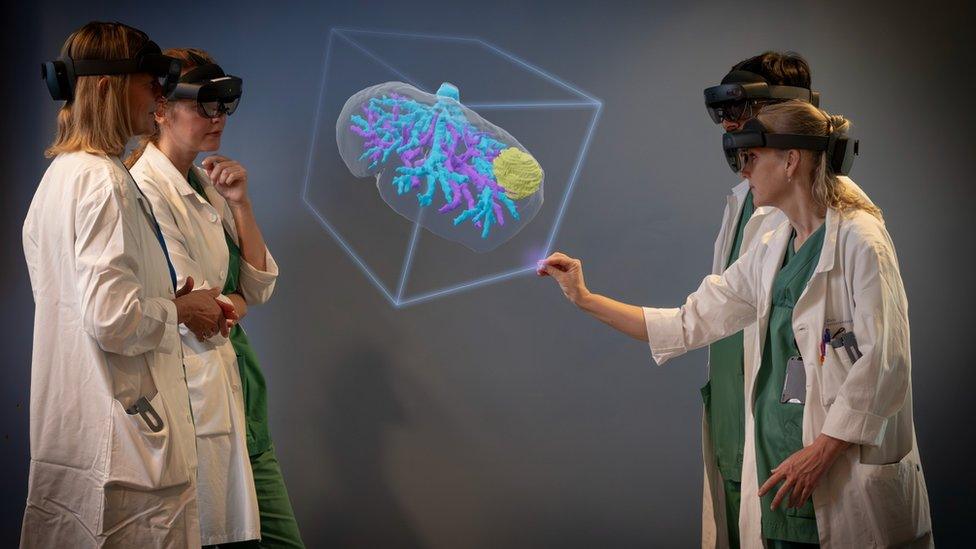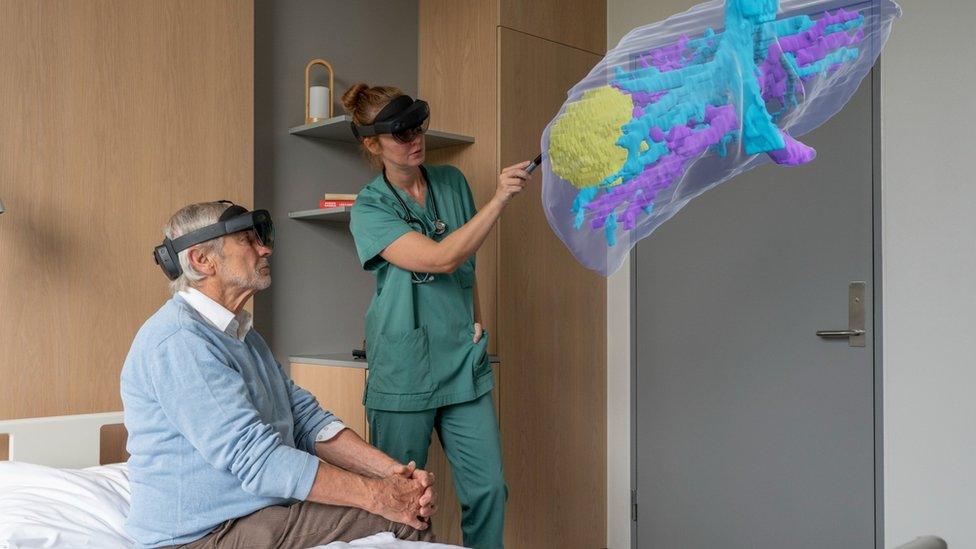Leeds doctors using 3D organ holograms to help surgery
- Published

The technology allows doctors to see the exact anatomy of their patient
Interactive 3D holograms of patients' organs are being used at a hospital in Leeds to improve surgery for patients.
The software enables doctors to plan and personalise operations to each person's unique, individual anatomy.
During procedures, surgeons are able to use AI headsets to help direct their work more efficiently and accurately.
The technology is being used for liver surgery initially at five hospitals in the UK and EU, including St James's in Leeds.
Professor Peter Lodge, a consultant surgeon at Leeds Teaching Hospitals NHS Trust, said his team were already using the AI headsets.
"We can look at the organ on the headset from above, behind, below and I can have other colleagues wearing headsets all looking at the same thing together, making it bigger, smaller," he said.
"This puts everything into 3D and they can anticipate what they're going to find at surgery and that's really important."

The technology aims to help surgeons both before and during operations
It is hoped the technology, created by Norwegian firm HoloCare, will help improve waiting times, surgery outcomes and the wellbeing of clinicians.
Prof Lodge, who is chairing a new clinical advisory board for HoloCare monitoring the use of the technology, said it was hoped it would make decision-making for liver surgery and other liver cancer therapies "easier, more accurate and faster".
He said it might also be able to be used for other surgeries in the future.
"This has applications to heart surgery and other parts of the body like the pelvis," he said.
"It relates to gynaecology, urology and colorectal surgery, so all of these different specialities are going to benefit in the future."

Follow BBC Yorkshire on Facebook, external, X (formerly Twitter), external and Instagram, external. Send your story ideas to yorkslincs.news@bbc.co.uk, external